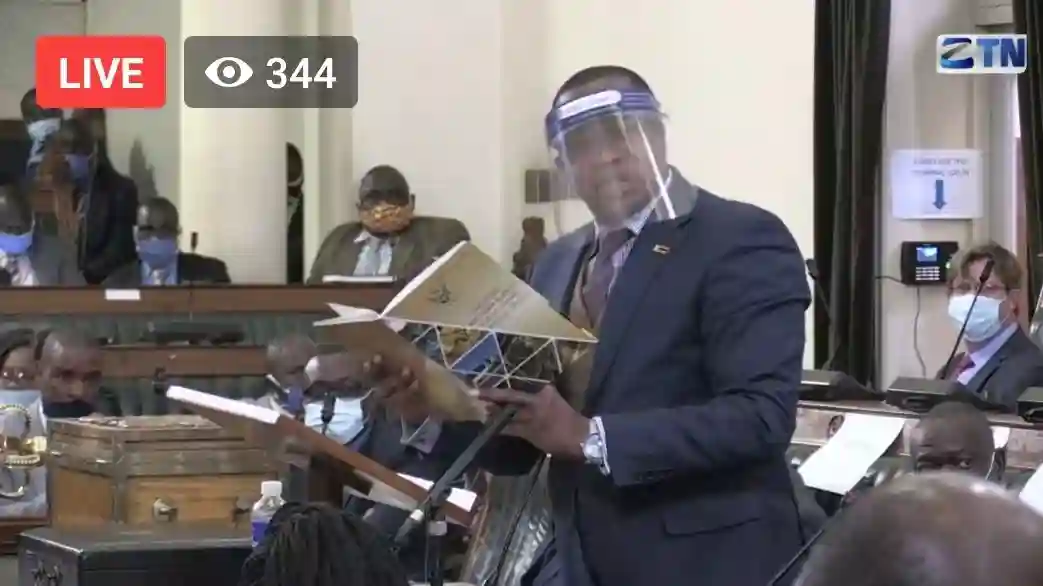Finance and Economic Development Minister Mthuli Ncube presented the mid-term budget review this Thursday.
One of the major highlights of the review was that there will not be a supplementary budget as Ministries have spent only 46 per cent of their budgetary allocations.
Here are some of the highlights from the 2020 mid-term budget review:
- Zimbabwe’s manufacturing sector will contract by 10.8% in 2020, against the initial projection of -1.9%.
- The overall economy is forecasted to contract by 4.5% in 2020 and recover by 7.4% in 2021.
- As at 31st May 2020, total foreign currency inflows amounted US$2.35 billion, against foreign payments amounting to US$1.55 billion.
- Remittances are projected to slightly decline by 4.9% to US$877 million in 2020, from US$921.7 million in 2019, as major source economies, such as South Africa, UK, and the US go into recession this year.
- Foreign Direct Investment (FDI) is forecast to fall by 40% to US$150.4m this year from the US$249.5m recorded in 2019. In the first half, FDI inflows were just US$71.2 million compared to US$111.6 million recorded during the same period in 2019.
- The tax-free threshold to be reviewed from ZWL$2 000 to ZWL$ 5 000 per month.
- The tax bands to be adjusted to begin at ZWL$5 001 and end at ZWL$ 100 000, above which the Highest Marginal Tax rate of 40% will apply, with effect from 1 August 2020.
- Health workers will not pay tax on their COVID-19 Risk Allowances for a period of 12 months, starting from 1 April 2020.
- Companies that make COVID-19 donations now get tax deductions of the equivalent of US$100K.
- For the period January to June 2020, a budget surplus of around ZWL$800 million has been realised. This takes account of the outstanding payment.
- The banking sector remained adequately capitalised, with aggregate core capital of ZWL$10.74 billion, as at 31 March 2020.
- The government has embarked on the formulation of the National Development Strategy (NDS): 2021-2025, which is the first of two medium-term development plans guiding the country’s development trajectory towards Vision 2030.

